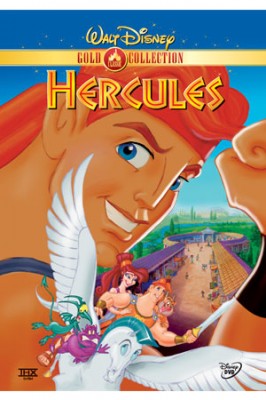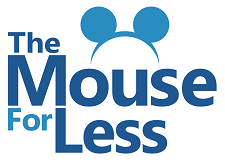
The 35th full-length animated feature in Disney history, Hercules was released on June 27, 1997. It is based on Greek and Roman mythology and clocks in at 93 minutes.
Plot Summary
It’s the greatest possible day in the universe, the day when a new god joins Mount Olympus. Zeus and Hera celebrate the birth of their son, Hercules, and the entire immortal family joyfully parties…well, not quite the entire family.
Disgusted with his life in the underworld, Hades devises an evil scheme to steal the show, ordering his sidekicks, Pain and Panic, to kidnap and kill Hercules.
The title character miraculously survives the ordeal, but he’s not unscathed. Indeed, to rejoin the gods, Hercules must prove himself to be a “true hero.” Can he accomplish this feat?
Themes
Though the setting of Hercules isn’t reminiscent of contemporary life on the surface, many of the film’s themes, including human worth, heroism, and love, are applicable to today’s world.
Often times, people may question their worth for various reasons such as bullying or general struggles. It’s important to remember that everyone has a place in the world; one’s role just has to be uncovered. Such was the case with Hercules, who transformed from an insecure teen to a confident player with the help of a trainer named Philoctetes.
Philoctetes—I’ll just refer to him as “Phil” from now on because he prefers that moniker—shows that while others can help an individual realize his or her potential, a person is ultimately in control of his or her own fate. Phil guided Hercules well, but as demonstrated by the female protagonist Megara, he wasn’t always correct in his assessments, and Hercules was often forced to think for himself. This situation reminds me of the posters in my high school classrooms that said, “Teachers open the door, but you must enter by yourself.”
The flick shows that fame and heroism don’t always go together. While the entire populous of Thebes may cherish Hercules and possess his merchandise —seriously, I didn’t realize sneakers and credit cards were so popular in Ancient Greece!—the title character still isn’t necessarily a hero, because as we often see in today’s world, many famous people can be aloof, while some great individuals don’t garner much recognition.
As Hercules gradually discovers, selflessness is a key component of heroism. The situation surrounding his relationship with Megara depicts selflessness because Hercules willingly risks his livelihood to protect her. I guess Merlin from The Sword and the Stone (1963) was correct when he pronounced love to be a greater force than gravity!
Humor
With numerous jokes and visual gags, I find Hercules to be among Disney’s funniest animated films.
Most of the characters, even the villains, are witty, corny, and sarcastic, and many of their lines will catch your attention. For example, when Hercules struggles with his words, Megara sarcastically asks him whether he’s “always this articulate.” Obviously, the humor here won’t mesh with everyone, but it’s definitely present.
Additionally, gags that seek to connect Ancient Greece to 1990s American culture are inserted throughout the movie. We encounter action figures, traffic signals, Michael Jordan-esque sneakers and billboards, and props from The Lion King (1994). Disney even pokes some fun at itself by placing a Hercules gift shop in the film! This store may not be positioned at a theme park attraction exit, but it’ll suffice.
One of the funniest scenes in my opinion is the segment towards the end where the Titans break for Mount Olympus in the wrong direction. A similar scene featuring Merlin, Arthur, and a pesky wolf is present in The Sword in the Stone.
Music
The music in Hercules is very upbeat and, in my opinion, excellent. It’s one of those soundtracks where I enjoy the songs on their own terms, not just within the film’s context, and struggle to remove said songs from my head.
Performed by the Muses, who rescue the film from its initial boring narrator, “The Gospel Truth” serves as the movie’s major thread. After an initial performance at the open, this number is reprised with varying moods several times thereafter.
Articulating Hercules’ desire to find his niche, “Go the Distance” is probably the film’s flagship song. I consider the version in the movie proper to be more subdued than Michael Bolton’s rendition during the end credits, partly because the in-film performance is surrounded by melancholy plot context and partly because I think Bolton’s voice is epic.
I find Megara’s song “I Won’t Say (I’m in Love)” to be underrated. I had no recollection of this number before I re-watched the film recently, but I really enjoyed it. I thought the tune was catchy, and I found the theme about the conflicts of true love to be relatable to everyday life.
In the Parks
Hercules doesn’t hold a major place at Walt Disney World or Disneyland. No attractions based on the film exist, and the characters, namely Hercules, Megara, and Hades, rarely appear.
Overall
With its combination of great humor, catchy music, and interesting thematic elements, I think Hercules is one of Disney’s most underrated films. I definitely recommend giving it a watch, and in the words of the Muses, “That’s the gospel truth!”
What do you think of Hercules? Let me know in a comment!
Sponsored Ad: Would you like to help support The Mouse For Less website in continuing their mission of being THE Disney vacation planning resource? You can do so by purchasing Hercules from our affiliate link through Amazon.
Incoming search terms:
- https://www themouseforless com/blog_world/movie-review-hercules/
- https://www themouseforless com/blog_world/movie-review-hercules/#:~:text=Indeed, to rejoin the gods Can he accomplish this feat?&text=Though the setting of Hercules are applicable to todays world

